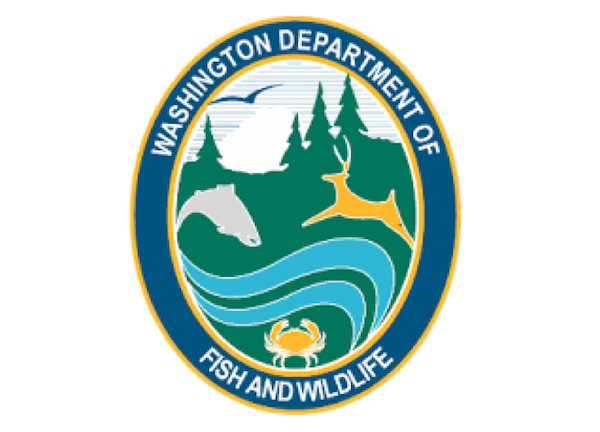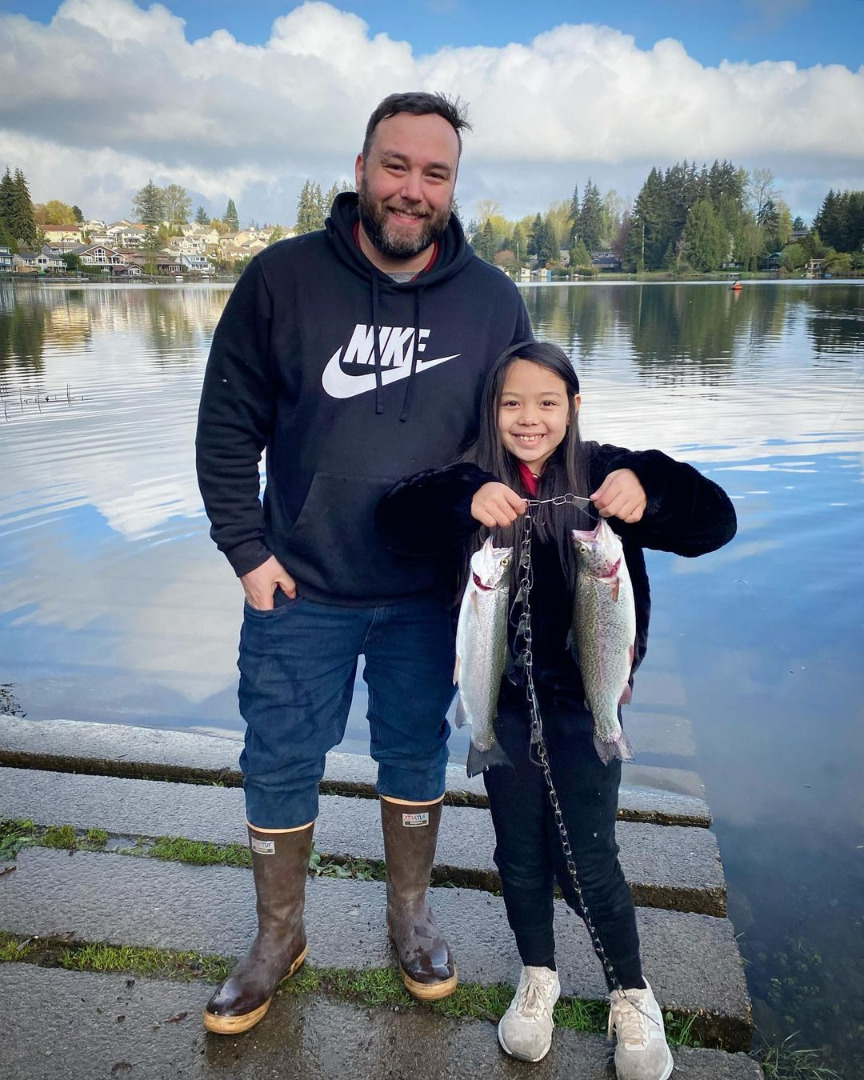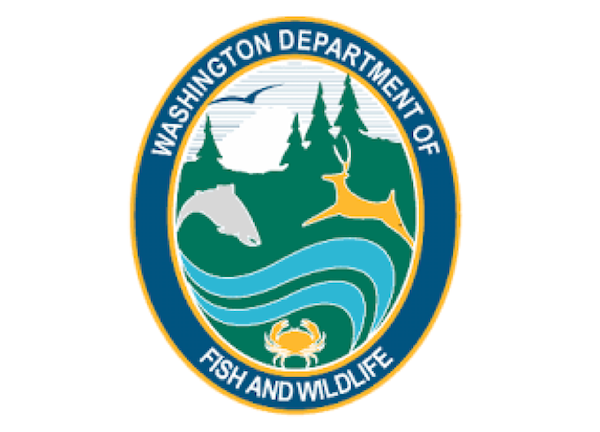Fish Report for 4-23-2022
WDFW approves 9 days of razor clam digs beginning April 29; daily limit is 20 clams

by WA Department of Fish & Wildlife Staff
4-23-2022
Website
OLYMPIA – Shellfish managers with the Washington Department of Fish and Wildlife (WDFW) confirmed Friday that the final round of razor clam digging can proceed as planned from April 29-May 7 to wrap up a memorable season.
“As we enter the homestretch of the 2021-2022 recreational razor clam season, it’s quite clear that this will go down as one of the best on record,” said Dan Ayres, the WDFW coastal shellfish manager. “Looking to the future, the cooler, productive ocean conditions we are experiencing now may be a good indicator for another great season starting this fall.”
A total of 432,380 diggers from Sept. 17 to April 21 (111 digging days) have taken home more than 7.1-million razor clams. During digs on April 16-21 the average was 19.1 clams per person at Long Beach; 19.3 at Twin Harbors; 19.2 at Copalis; and 18.7 at Mocrocks. Razor clams have been quite large averaging 4.3” at Long Beach; 4.7” at Twin Harbors; 4.8” at Copalis; and 4.5” at Mocrocks.
On all open beaches – Long Beach, Twin Harbors, Mocrocks, and Copalis – the daily limit from April 29 through May 7 is 20 clams instead of the usual 15. Each digger’s clams must be kept in a separate container, and all diggers must keep the first 20 clams they dig, regardless of size or condition. Diggers are reminded that a possession limit of shellfish is one daily limit in fresh form, and all other shellfish must be frozen or processed. Razor clams that are simply cleaned are not considered processed. For more information, please visit https://www.eregulations.com/washington/fishing/.
Digging is allowed during low tide from 12 a.m. through 11:59 a.m. only (except extended to 1 PM on May 7 only):
- April 29, Friday, 6:31 AM; -0.1 feet; Long Beach, Twin Harbors, Copalis
- April 30, Saturday, 7:10 AM; -0.5 feet; Long Beach, Twin Harbors, Mocrocks
- May 1, Sunday, 7:47 AM; -0.8 feet; Long Beach, Twin Harbors, Copalis
- May 2, Monday, 8:22 AM; -0.8 feet; Long Beach, Twin Harbors, Mocrocks
- May 3, Tuesday, 8:57 AM; -0.7 feet; Long Beach, Twin Harbors, Copalis
- May 4, Wednesday, 9:34 AM; -0.4 feet; Long Beach, Twin Harbors, Mocrocks
- May 5, Thursday, 10:13 AM; -0.1 feet; Long Beach, Twin Harbors, Copalis
- May 6, Friday, 10:57 AM; +0.2 feet; Long Beach, Twin Harbors, Mocrocks
- May 7, Saturday, 11:48 AM; +0.5 feet; Long Beach, Twin Harbors, Copalis (digging hours extended to 1 PM)
Details on the razor clam season can be found at wdfw.wa.gov/razorclams.
Not all beaches are open for every dig, so diggers are encouraged to make sure their intended destination is open before heading out. The most successful digging occurs between one and two hours before the listed time of low tide.
As in past years, WDFW is asking beachgoers to avoid disturbing nesting snowy plovers – an endangered shorebird – by staying out of the dunes and posted areas along the southwest Washington coast. Snowy plover nests are nearly invisible, and it is vital to give these birds the space they need to live and thrive during their nesting period, especially along the southern end on Twin Harbors – known as Midway Beach – and the north end of Long Beach. People should avoid leaving leftover food or trash – which attracts predators – on the beach and picnic areas, keep pets on a leash, stay out of dunes, and avoid areas which are clearly marked with posted signs. When driving on the beach, please respect the 25 MPH speed limit and enter only at designated access points. Be sure to stay on the hard-packed sand near the high tide line to avoid crushing clam beds and snowy plover nests. For details on the snowy plover, go to https://wdfw.wa.gov/species-habitats/species/charadrius-nivosus.
Razor clam diggers must have a new 2022-2023 recreational fishing or shellfishing licenses to participate. All diggers age 15 or older must have an applicable fishing license to harvest razor clams on any beach. Details can be found at https://wdfw.wa.gov/licenses.
For helpful tips on how to clean and cook razor clams, go to the WDFW YouTube link at https://www.youtube.com/watch?v=sTaRaHkFFEw. For additional tips and razor clam recipes, go to https://wdfw.wa.gov/fishing/basics/digging-razor-clams.
WDFW and tribal co-managers will begin assessments this summer to determine razor clam abundance. WDFW will also have a public comment period around the end of August. To learn more about razor clam abundance, population densities at various beaches, and how seasons are set, visit https://wdfw.wa.gov/fishing/shellfishing-regulations/razor-clams#management.
The Washington Department of Fish and Wildlife works to preserve, protect, and perpetuate fish, wildlife and ecosystems while providing sustainable fish and wildlife recreational and commercial opportunities.
More Reports

4-23-2022
Happy lowland lakes fishing opener, Washington anglers! Sophia and her dad Neil caught two of the bigger rainbow trout we’ve...... Read More
WA Department of Fish & Wildlife Reports
for Friday, April 15th, 2022
: Recreational spot shrimp fishery opens May 25 in much of Puget Sound
Snake River: Snake River Spring Chinook Fishery Change
: Trout season ramps up as lakes open across Washington April 23, trout derby gets underway

Website Hosting and Design provided by TECK.net